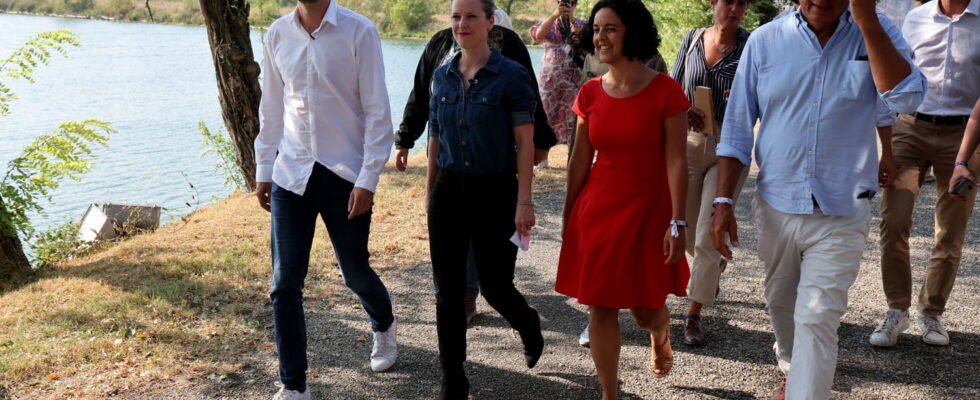A New Popular Front government seemed impossible until Jean-Luc Mélenchon suggested forming a team without rebellious ministers.
Despite its victory in terms of the number of seats in the legislative elections, the hypothesis of forming an NFP government without an absolute majority seems very unlikely. Passing a text without exposing oneself to a motion of censure from the opposition would prove impossible.
On August 23, Emmanuel Macron received Lucie Castets, during his cycle of consultations with party and parliamentary group leaders. The NFP candidate for Matignon considered the president “lucid” about “the desire for a change in political direction”. She spoke of a “very rich discussion” with the latter.
The presidential majority, however, rules out any possibility of governing with La France insoumise. However, this condition could have been heard. Jean-Luc Mélenchon opened the door, on August 24 on TF1, to a government without rebellious ministers but with the NFP candidate for Matignon at its head. “The government of Lucie Castets, if it did not include any rebellious ministers, would you commit to not voting for censure and to allowing her to implement the program for which we came out on top in the legislative elections?”, he addressed to the leaders of the “three Macronist parties and the right”. The left is thus trying to clarify the president’s real intentions. On XOlivier Faure, the first secretary of the PS, has, in fact, made it known that thus “the pretext of the presence of FI ministers no longer exists”. “We are now waiting for the response of all those who thought they had found there a way to reject the NFP en bloc”, he added.
Which NFP government? Which ministers?
If there is no LFI, who could be a minister in the event of an NFP government? If Lucie Castet has refused to give names yet, François Hollande is in reality eyeing the Ministry of Foreign Affairs. The Quai d’Orsay seems to be an ideal portfolio for François Hollande. It is a high-profile ministry that escapes somewhat from the supervision of Matignon in favor of direct links with the Elysée. Few other names are circulating at the moment, but it remains to be seen what would become of the leaders of the various NFP forces such as Olivier Faure, Marine Tondelier and Fabien Roussel if such a situation arose.
If the NFP finally succeeds, it has already set itself five major priorities. Among them, purchasing power with in particular an increase in the minimum wage and the repeal of the pension reform, the “ecological bifurcation” of the economy, education, health and a “fairer” tax system. The left-wing union also wishes to revisit certain issues deemed important such as “the end of life, child protection, single-parent families, the establishment of a minimum number of caregivers per hospitalized patient or sexual violence in the cultural sector”.
The withdrawal of the Insoumis insufficient?
To get there, Emmanuel Macron would first have to agree to appoint Lucie Castets as Prime Minister, an option he has rejected on several occasions, although the left does not seem ready to negotiate for another name. In addition, the RN, which has increased its number of deputies in the Assembly, is considering filing a motion of censure in the event of an NFP government. “We have indicated that we are in favor of a motion of censure with regard to a probable government of the New Popular Front,” assured Jordan Bardella as he left the Élysée on August 26. He added that the absence of LFI “will change absolutely nothing.” Eric Ciotti, president of the À droite! group in the National Assembly, also invited to the Élysée on the same day, expressed the same opposition.
A similar tone is heard from Ensemble, which fears the NFP program. Laurent Marcangeli, president of the Horizons group in the National Assembly, told Le Figaro that “if it were implemented, the NFP program would cause a crisis,” also brandishing the threat of a mention of censure.
